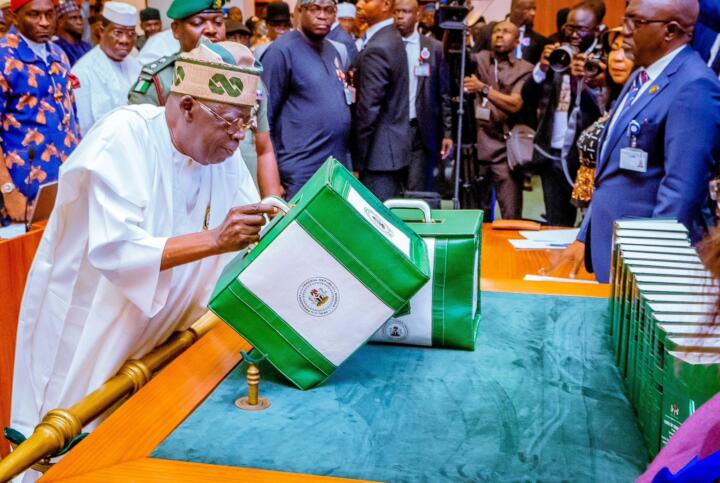President Bola Ahmed Tinubu is expected to present Nigeria’s proposed 2025 budget, estimated at a historic N47 trillion, to the National Assembly today. If approved, this budget will mark a significant milestone, being the largest in the country’s history, as it seeks to address Nigeria’s economic challenges and drive growth in critical sectors.
Focus on Economic Recovery
The 2025 budget, tagged *“Budget of Renewed Hope and Growth,”* reflects the Tinubu administration’s commitment to reviving the economy amidst fiscal pressures, including high inflation, revenue shortfalls, and the lingering effects of subsidy removal. The budget prioritizes infrastructure development, energy transition, job creation, and social investment programs aimed at reducing poverty.
The administration has signaled its intent to intensify structural reforms to stabilize the economy. In line with these goals, the budget allocates substantial funds to key sectors such as education, health, agriculture, and security.

### Financing the Deficit
The proposed budget comes with a projected deficit of N15 trillion, driven by ambitious spending plans and limited revenue streams. The government plans to finance this deficit through a combination of domestic and external borrowings, further sale of government assets, and partnerships with private investors.
However, this has raised concerns about Nigeria’s ballooning debt profile, which currently stands at over N87 trillion. Analysts caution that excessive borrowing could undermine long-term fiscal stability if not paired with aggressive revenue generation strategies.
### Tax Reforms and Revenue Mobilization
To address revenue shortfalls, the Tinubu administration is banking on ongoing tax reforms to broaden the tax base and improve compliance. The government is also exploring new revenue streams, including the introduction of green taxes and the expansion of digital taxation.
In addition, the Finance Bill 2025, which is expected to accompany the budget proposal, will outline measures to enhance tax administration and boost the non-oil revenue base. The government is targeting a significant increase in Value Added Tax (VAT) collection and has proposed changes to excise duties on luxury items.
### Infrastructure and Job Creation
The government is allocating significant resources to infrastructure projects, particularly in transport, energy, and housing. The budget includes provisions for the completion of ongoing projects, such as road and rail networks, and the expansion of the power grid to support industrial growth.
The administration also aims to create millions of jobs through initiatives in agriculture, manufacturing, and technology. Special attention is being given to youth empowerment programs, with increased funding for skills acquisition and entrepreneurship training.
### Social Investments
A major highlight of the proposed budget is the allocation for social intervention programs. With a significant portion of the population grappling with economic hardship, the government is boosting funding for cash transfer programs, health insurance schemes, and free school meal initiatives.
The education and health sectors are expected to receive a combined allocation of over N5 trillion, reflecting the government’s pledge to improve access to quality services in these critical areas.
Legislative Reception
As Tinubu presents the budget to the National Assembly, lawmakers are expected to scrutinize its assumptions, particularly the revenue projections and deficit financing plans. While the administration anticipates broad support, there may be debates over specific allocations and the feasibility of achieving set targets.
Implications for 2025
The N47 trillion budget underscores the administration’s ambitious plans to address Nigeria’s pressing economic challenges. However, its success will largely depend on the government’s ability to implement reforms, enhance transparency, and foster collaboration with stakeholders.
If executed effectively, the 2025 budget could set the stage for sustainable economic recovery and development, paving the way for long-term growth and improved living standards for Nigerians.
Support InfoStride News' Credible Journalism: Only credible journalism can guarantee a fair, accountable and transparent society, including democracy and government. It involves a lot of efforts and money. We need your support. Click here to Donate
